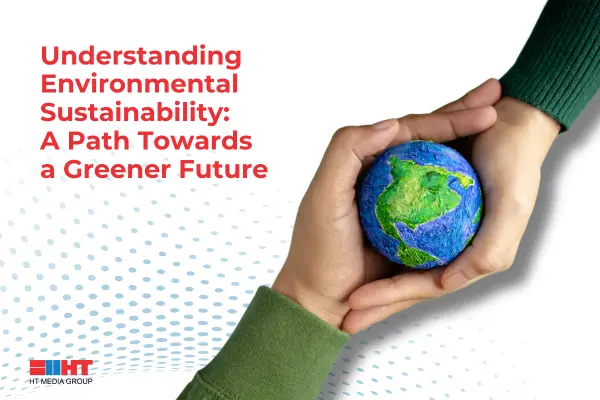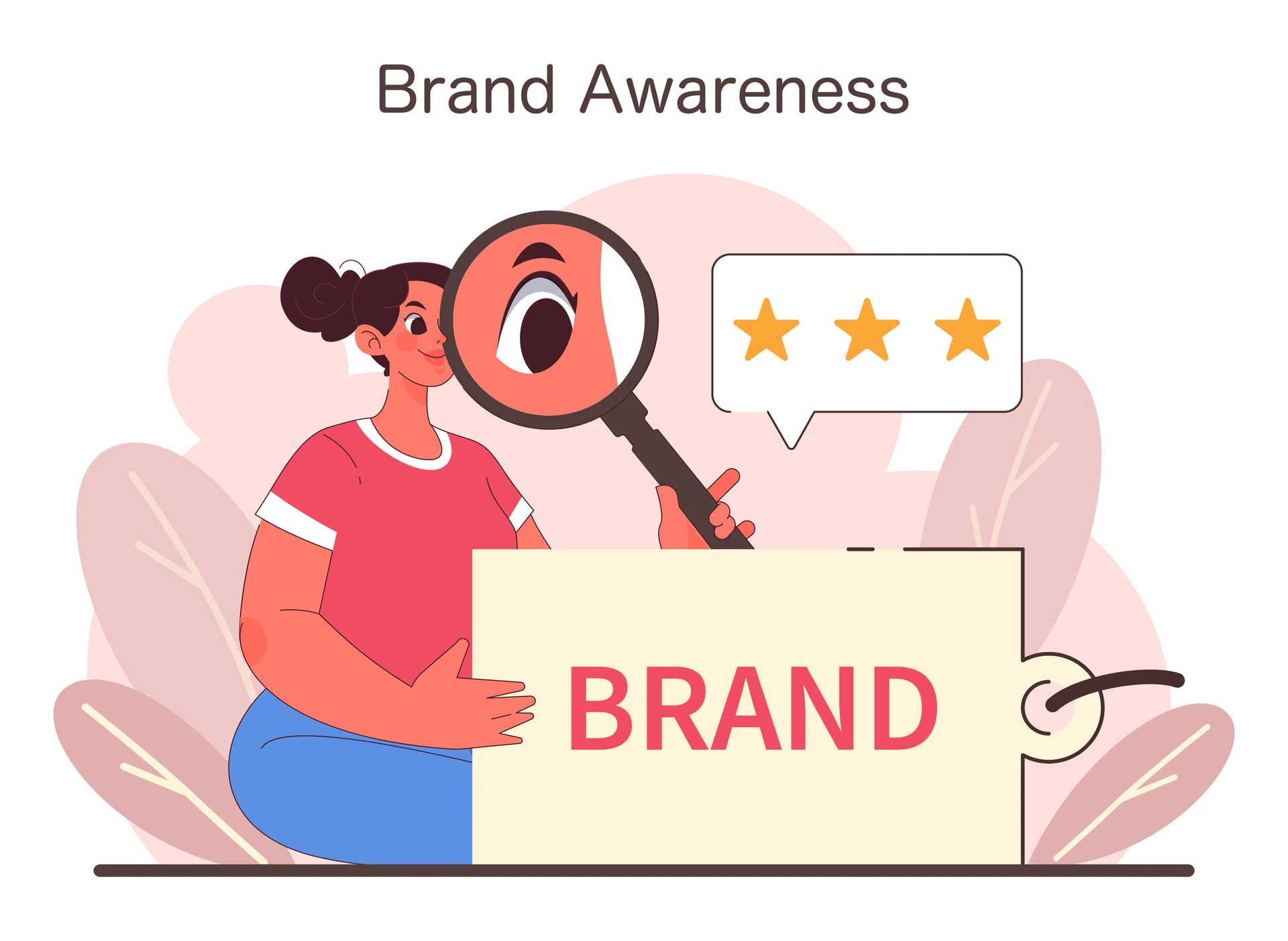Environmental sustainability is all about using natural resources responsibly so that they’re available for future generations. This means adopting actions and policies that reduce pollution, protect wildlife and ecosystems, and shift to renewable energy sources whenever possible. By managing resources thoughtfully, we aim to balance our needs with what nature can renew, ensuring a healthier planet going forward.
Why is this important? With challenges like climate change, deforestation, and pollution on the rise, sustainability efforts help slow global warming, protect biodiversity, and create cleaner air and water for healthier communities. Embracing sustainability not only supports the environment but also strengthens economic resilience and promotes well-being, which benefits businesses and society alike. For companies, adopting sustainable practices can lead to new opportunities, align with consumer values, and create a positive brand image in today’s eco-conscious market.
The Core Components of Environmental Sustainability
Ecological Balance
Maintaining biodiversity the wide range of life on Earth is essential for stable ecosystems. Each species plays a part, helping create a resilient environment that supports everything from food supply to natural resources. High biodiversity makes ecosystems stronger against changes and disruptions, which benefits businesses by ensuring resources like clean air, water, and raw materials remain available. For marketers, supporting ecological balance through sustainable practices aligns brands with consumer values and helps create a positive public image. By promoting biodiversity and supporting ecosystem health, companies can contribute to a sustainable future that benefits everyone.
Resource Management
Using natural resources sustainably means managing them to ensure they last for the long term. This includes cutting waste, improving efficiency, and using renewable resources like solar and wind energy wherever possible. Non-renewable resources, such as fossil fuels and minerals, need careful handling because they’re finite. For B2B marketers, highlighting sustainable practices like recycling, responsible sourcing, and renewable energy use in campaigns can enhance brand reputation and attract eco-conscious clients. Emphasizing resource management shows a commitment to sustainability, which can resonate well with today’s environmentally aware consumers.
Social and Economic Equity
Environmental sustainability is closely tied to fairness and equal access. Disadvantaged communities are often hit hardest by pollution and climate impacts like extreme weather and resource shortages. Fair access to clean air, water, and safe environments is crucial for creating equitable, sustainable communities. For marketers, incorporating social equity into messaging can build trust and show corporate responsibility, as businesses become active in supporting fair environmental policies and community involvement. Additionally, sustainability-focused jobs in green sectors, like renewable energy, reduce costs and create stable economies that adapt better to environmental changes. By supporting social and economic equity in sustainability efforts, B2B brands can foster goodwill and contribute to a fairer, greener future for all.
The Significance of Environmental Sustainability
Addressing Climate Change
Activities like deforestation, industrial production, and fossil fuel use have driven up greenhouse gas emissions, trapping heat in the atmosphere and creating major global risks:
- Global Warming: Rising temperatures affect natural ecosystems, melt polar ice, and lead to rising sea levels, all of which impact communities and economies.
- Extreme Weather Events: Increased frequency of storms, droughts, and floods puts both human lives and wildlife at risk, affecting markets and supply chains.
- Loss of Biodiversity: Many species cannot adapt to rapid climate changes, leading to habitat loss and extinction, which weakens ecosystems and the resources they provide.
How Sustainable Practices Help Mitigate Climate Change
For businesses and marketers, adopting sustainable practices can reduce these effects while aligning with the values of eco-conscious consumers:
- Lowering Emissions: Switching to renewable energy sources and energy-efficient technology can significantly reduce dependency on fossil fuels, enhancing brand appeal in today’s market.
- Increasing Carbon Absorption: Reforestation and sustainable land use absorb CO₂, offsetting emissions and contributing to environmental goals that resonate with customers.
- Supporting Resilient Ecosystems: Protecting natural habitats helps ecosystems adapt and maintain services like clean water, essential for sustaining communities and markets.
Protecting Natural Habitats
Conservation for Future Generations
Conserving natural habitats is essential for protecting our planet’s health and ensuring resource availability:
- Biodiversity Preservation: Healthy habitats support diverse species, maintaining ecosystem resilience that businesses depend on, from agriculture to medicine.
- Securing Resources: By conserving ecosystems, we ensure access to clean water, food, and plant-based resources, essential for future generations and sustainable business operations.
- Cultural Value: Natural areas often have deep cultural and traditional significance. Supporting conservation reflects a brand’s commitment to protecting heritage and community values.
Economic and Health Benefits of Preserving Nature
Preserving natural spaces has practical benefits for businesses and society:
- Tourism and Recreation: Healthy ecosystems attract tourism, creating jobs and boosting local economies. Sustainable tourism can also generate revenue while supporting conservation efforts.
- Ecosystem Services: Natural habitats provide crucial services like pollination, soil fertility, and water purification, essential for agriculture and food security.
- Public Health: Access to natural spaces promotes well-being, reduces stress, and fosters a positive social environment, all contributing to a happier, healthier society.
Investing in nature conservation benefits businesses and communities, supporting sustainable growth and public health, while reinforcing a brand’s ethical commitment to the environment.
Enhancing Quality of Life
A clean and healthy environment plays a big role in human well-being:
- Physical Health: Clean air and water are essential for preventing illnesses, while pollution can lead to respiratory and heart conditions. Brands that support cleaner practices contribute to community health.
- Mental Health: Natural environments help reduce stress and anxiety, enhancing community happiness and engagement, which can support positive brand association.
- Social Cohesion: Green spaces create community hubs, fostering connections and social engagement, which strengthen communities and consumer loyalty.
Long-Term Benefits of Sustainable Living
Sustainable practices offer lasting benefits for businesses and communities:
- Conserving Resources: Efficient use of resources reduces waste and helps ensure that essential materials remain available, building resilience into supply chains and business operations.
- Cost Savings: Sustainable practices reduce energy and waste, saving money in the long run and creating efficient solutions that benefit both businesses and consumers.
- Adaptability: Communities that embrace sustainability are better able to handle environmental challenges, making them more resilient to change and resource scarcity.
Adopting sustainable practices enhances quality of life, builds community resilience, and aligns with the values of today’s consumers, creating a more sustainable, prosperous future for all.
Strategies for Achieving Environmental Sustainability
Sustainable Practices at Home
Individuals can make an impact on sustainability through simple changes at home, such as reducing waste, recycling, and conserving energy. Actions like using reusable bags, saving water, and turning off lights may seem small but collectively contribute to a larger environmental impact. B2B marketers can communicate these easy-to-adopt practices as part of eco-conscious brand messaging, helping companies resonate with environmentally aware consumers.
Promoting eco-friendly products, like biodegradable cleaning supplies and sustainably sourced materials, supports environmental sustainability and reduces harmful impacts. For marketers, emphasizing the benefits of eco-conscious products not only builds brand reputation but also appeals to the growing number of consumers looking for sustainable options. Highlighting these choices within marketing strategies aligns a brand with green practices and appeals to both individuals and businesses prioritizing sustainability.
Community Initiatives
Local organizations play a critical role in spreading environmental awareness, from organizing community clean-ups to running sustainability workshops. For B2B marketers, collaborating with local organizations or supporting community-led environmental initiatives can strengthen brand reputation and reinforce a company’s commitment to sustainability. This approach also increases local engagement, building goodwill within communities.
Projects like community gardens, recycling programs, and local renewable energy installations inspire sustainable practices and foster a sense of shared responsibility. Marketers can leverage success stories from such projects in campaigns to demonstrate their brand’s role in supporting positive change. By backing community-driven sustainability, companies can amplify their impact and strengthen their local presence, which resonates well with audiences.
Government Policies and Corporate Responsibility
Government policies provide the foundation for widespread change in sustainability, with regulations and incentives that encourage eco-friendly business practices. Marketers can position brands as industry leaders by promoting their alignment with such policies, showcasing how the brand adheres to or even exceeds regulatory standards. Highlighting this alignment strengthens a company’s credibility and appeals to clients who value responsible corporate practices.
How Businesses Can Implement Sustainable Practices
Businesses can advance sustainability by reducing waste, adopting eco-friendly materials, and investing in renewable energy. Corporate social responsibility (CSR) initiatives further demonstrate a company’s commitment to sustainability. Marketers can spotlight these practices, demonstrating the company’s leadership in sustainable business. By sharing stories of eco-friendly actions and achievements, marketers create narratives that resonate with environmentally conscious customers, showcasing the brand as a forward-thinking, responsible choice.
By incorporating these strategies, B2B marketers can position brands as active participants in environmental sustainability, appealing to both businesses and consumers looking to make a positive environmental impact.
The Role of Education in Promoting Sustainability: Insights for Marketers with HT Media
Building Awareness and Advocacy
Educating younger generations about sustainability isn’t just essential for creating a responsible future but also a powerful way for brands to connect with audiences who value eco-conscious practices. For marketers, partnering with HT Media to support educational initiatives provides a meaningful way to promote sustainability values. By contributing to or sponsoring educational programs, brands can position themselves as leaders in social responsibility, creating long-term value and audience loyalty.
There are numerous community-driven sustainability programs like eco-focused school curricula and local workshops that foster environmental awareness and active participation. By supporting these initiatives or creating engaging content around them, marketers can build a narrative that aligns their brand with positive social impact. HT Media can help amplify these efforts, positioning your brand as an advocate for environmental sustainability and deepening connections with local communities.
Innovation and Research as Drivers of Sustainability
Scientific research is essential for finding innovative solutions to environmental challenges, offering insights that can shape sustainable business practices. As a marketer, aligning your brand with research-backed sustainability efforts can strengthen its credibility and demonstrate leadership in environmental responsibility. HT Media’s platforms provide a unique opportunity to showcase your brand’s commitment to sustainability through insightful reports, thought leadership articles, and campaigns that resonate with eco-conscious audiences.
Technological advancements are making it easier to adopt sustainable practices from renewable energy to smart agriculture and efficient waste management. For marketers, highlighting your brand’s use of innovative tech solutions can set you apart as a forward-thinking, eco-friendly choice. Partnering with HT Media allows you to build campaigns that showcase your brand’s role in using technology for sustainability, appealing to both B2B clients and environmentally aware consumers.
Working with HT Media to emphasize educational and sustainable initiatives helps marketers position their brands as advocates for a greener future. This not only builds brand reputation but also fosters loyalty among customers who value sustainability and social impact.
Mint Sustainability Summit: Event for Environmental Sustainability
The Mint Sustainability Summit is a premier event focused on advancing environmental sustainability through collaboration and innovation. It aims to foster dialogue among industry leaders, policymakers, and experts to promote sustainable practices.
Sponsoring the Mint Sustainability Summit provides businesses with unique opportunities to showcase their commitment to sustainability. Sponsors can benefit from brand exposure, engagement with key stakeholders, and the chance to showcase their sustainable initiatives.
Benefits of Sponsorship: Networking, Brand Visibility, and Thought Leadership
1. Enhanced Networking Opportunities
The HT Media Mint Sustainability Summit attracts industry leaders, innovators, policymakers, and sustainability advocates from a variety of sectors. By sponsoring this event, brands gain access to a highly engaged network of decision-makers and change agents focused on sustainable business practices. Sponsorship provides exclusive opportunities to connect, share ideas, and explore potential partnerships that can drive mutual growth. Sponsors can build valuable connections with prospective clients, investors, and collaborators who prioritize sustainable innovation, fostering relationships that may lead to long-term business opportunities.
2. Boosted Brand Visibility and Recognition
The Mint Sustainability Summit offers sponsors significant brand exposure through pre-event, on-site, and post-event marketing across HT Media’s extensive platforms. As sustainability is increasingly a top priority for consumers and businesses alike, aligning your brand with the Summit showcases your commitment to this cause. Sponsors can benefit from branding opportunities on digital platforms, promotional materials, and on-site displays, positioning them prominently before a highly targeted and influential audience. This visibility not only raises brand awareness but also aligns your brand with the positive and forward-thinking image associated with environmental responsibility.
3. Establishing Thought Leadership in Sustainability
Sponsoring the Mint Sustainability Summit allows brands to share insights, expertise, and innovations directly with an audience deeply interested in sustainable practices. Opportunities for thought leadership include speaking engagements, participation in expert panels, and co-hosted workshops. This platform allows sponsors to showcase their contributions to sustainability and establish themselves as leaders in their industry. By sharing real-world applications, case studies, or emerging trends, sponsors can demonstrate their commitment to sustainability, positioning their brand as a trusted authority in the movement toward a more sustainable future.
Through sponsorship, brands can solidify their position as sustainability advocates while benefiting from meaningful connections, high-impact visibility, and thought leadership that can drive future growth. The HT Media Mint Sustainability Summit offers a unique opportunity to connect with an audience that values and supports environmentally responsible brands.
Frequently Asked Questions
What is environmental sustainability?
Environmental sustainability refers to the responsible management of natural resources to ensure the health of ecosystems for future generations. It involves practices that maintain ecological balance while meeting present needs. This approach addresses issues such as resource depletion, pollution, and climate change. By implementing sustainable practices, individuals and organizations can help preserve the environment, enhance biodiversity, and promote the well-being of communities. The concept emphasizes the importance of balancing economic development with environmental protection, ensuring that future generations inherit a healthy planet.
Why is environmental sustainability important today?
The importance of environmental sustainability in today’s world stems from rapid industrialization, population growth, and resource depletion, which have created significant environmental challenges. Issues like climate change, loss of biodiversity, and pollution threaten ecological systems and human well-being. Adopting sustainable practices is essential for creating a resilient future. By prioritizing sustainability, we can mitigate the impacts of environmental degradation, promote public health, and foster economic stability. Ultimately, environmental sustainability is crucial for ensuring a livable planet for future generations and maintaining a balance between human activity and nature.
How can individuals promote environmental sustainability at home?
Individuals can promote environmental sustainability at home through simple yet effective practices. Reducing waste by recycling, composting, and using reusable bags can significantly minimize environmental impact. Conserving energy by turning off lights and unplugging devices when not in use is another essential step. Choosing eco-friendly products, such as biodegradable cleaners and sustainably sourced materials, also supports sustainable living. Additionally, conserving water by fixing leaks and using water-saving fixtures can contribute to resource preservation. Collectively, these actions can lead to a more sustainable household and inspire others in the community to follow suit.
What role do government policies play in sustainability?
Government policies are crucial for driving systemic changes in environmental sustainability. Effective regulations and incentives can encourage businesses and communities to adopt sustainable practices, fostering an overall culture of sustainability. Policies can include carbon pricing, renewable energy subsidies, and conservation initiatives. By prioritizing sustainability in legislative agendas, governments can support innovation, research, and community engagement. Additionally, public awareness campaigns can educate citizens about sustainability issues and encourage participation in eco-friendly practices. Ultimately, government policies are essential for establishing a framework that promotes environmental protection and social equity.
How does education contribute to environmental sustainability?
Education plays a vital role in promoting environmental sustainability by empowering future generations with the knowledge and skills needed to make informed decisions. Teaching students about environmental issues fosters a culture of sustainability, encouraging them to engage in eco-friendly practices. Community programs, workshops, and school curricula provide resources and support for individuals to learn about sustainability. Additionally, scientific research enhances understanding of environmental challenges and innovative solutions. By prioritizing education on sustainability, we can cultivate a more environmentally conscious society that actively works towards a healthier planet for all.
Ready to take your brand to the next level? Connect with us today to explore how HT Media can amplify your presence across our diverse portfolio of 25+ brands and properties. Let's turn your brand vision into reality!



















Comment